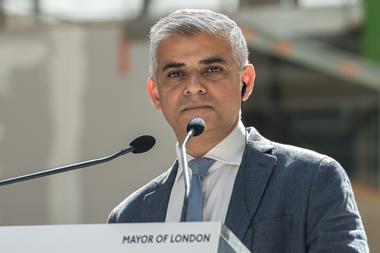
However you voted, you must be sick of Brexit by now.
It dominates every news bulletin as the Westminster bubble merchants scrutinise every utterance by any parliamentarian you have ever heard of – and quite a few you haven’t. Now it’s their Lordships’ turn in the spotlight. Frankly, I’d sooner stick pins in my eyes than listen to an hour of Lords debate but I predict peers will enjoy their day in the sun and despite all the warlike rhetoric will send the bill back to the Commons in much the same shape as it is now.
As regular readers know, I have always said the eventual deal will be one where we take back control of our borders and laws, which is what the country voted for, but we would not repeal many laws nor close our borders to EU citizens; to do so in either case would be economic madness. We will formally leave the single market and the customs union but will emerge with an arrangement that looks remarkably similar.

I am no wide-eyed optimist. We will reach this deal precisely because it suits the other 27 EU members and because the EU desperately needs some of our current net contribution of around £10bn a year.
We are the second-largest contributor to the EU budget. So the arguments will rage for at least the next 12 months and then a deal will be done. The fact that not much will change will outrage extreme Brexiteers but will have delivered the referendum outcome, freed us from external control and opened up the prospect of new markets.
Meanwhile, the economic news on the home front is good. Jobs up, unemployment down, growth at 1.8% significantly ahead of where every pundit predicted. As David Cameron – who got us all into this mess – so aptly remarked as he swanned around Davos last week: “It’s not as bad as we feared.” Thanks for that, Dave.
Domestic matters
Much more relevant to the property industry is what is not happening while all this is going on. Mrs May and her closest aides are so Brexit obsessed and she so incapable of making a decision that there is no domestic policy emerging anywhere. There is great talk of a housing crisis but no real action. For the numbers to change, policy has to change.
Take just one example I’ve come across several times recently. Large-scale developments, whether you call them a garden village or a market town, are generally well designed and in areas of obvious demand. Where they have happened – such as at Poundbury, the scheme adjacent to the village of Dorchester promoted by the Prince of Wales – they command significant premiums over nearby property. They are not the answer in every case but they are the right answer in several parts of the country.

However, such schemes are regularly stymied because nimbyism is alive and well and never really went away. Local councillors take their lead from vocal opponents because they want to be re-elected. They also know the government is terrified of appearing weak on the green belt.
Yet help may be at hand. Our new housing minister Dominic Raab is generally recognised to be one of the smartest younger Tory MPs and is cited as a successor to May. He will quickly work out that he will never be famous as the man who didn’t build homes. He will only get real brownie points if he can show he has delivered. He should launch a draft National Policy Statement on housing supply that would take individual decisions out of politics. The system has worked well in other planning areas – it is high time it was applied to housing.





























No comments yet